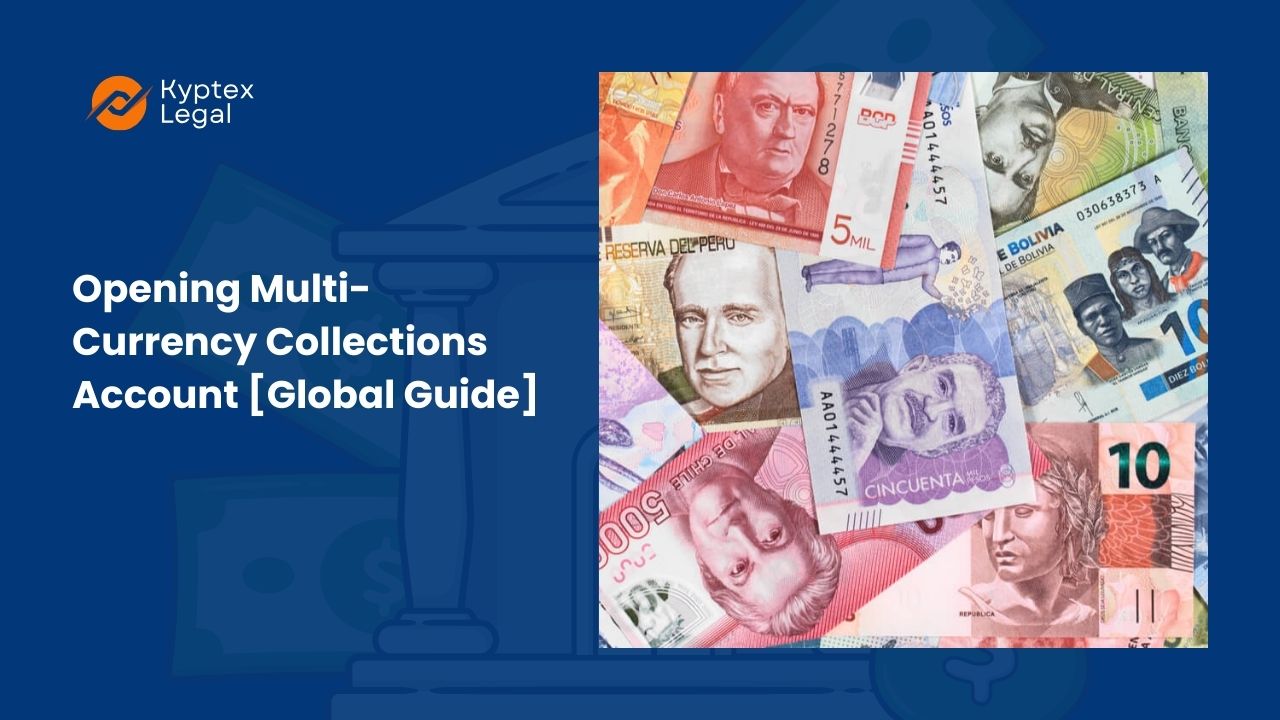
Businesses are progressively engaging with suppliers, customers, and partners from various countries, as they operate across borders in the contemporary era. The collection of remittances in multiple currencies is a critical challenge that arises as a result of the global nature of business.
What is a Multi-Currency Collections Account?
A multi-currency collection account is a form of bank account that allows businesses to collect and retain payments in a variety of currencies. Rather than converting foreign payments into the business’s native currency upon receipt, the funds are retained in the original currency, which provides a greater degree of flexibility in managing foreign exchange risks.
Benefits Of A Multi-Currency Collections Account
Simplified Currency Management
Businesses that receive payments in multiple currencies may maintain them in distinct sub-accounts within a single master IBAN account. This simplifies the process of monitoring income and expenses in each currency by eliminating the necessity for multiple bank accounts in various countries.
Minimised FX Costs
Businesses can prevent superfluous currency conversions by maintaining foreign currencies in their original form. A company may receive a payment in euros, but it will only be necessary to convert it to its native currency at a later time when favorable exchange rates are available. This adaptability can assist in the optimization of conversion timing and the reduction of FX costs.
Improved Cash Flow
Businesses are able to more effectively manage the timing and method of currency conversions by utilizing multi-currency collection accounts, which enhance liquidity. Companies can fulfill obligations in a variety of countries without incurring the delays and expenses associated with transporting money between accounts by maintaining multiple currencies in a single account.
Greater Control
Greater visibility and control over financial management are achieved by consolidating all international transactions within a single account. It enables businesses to access detailed reports for accountancy and forecasting purposes and monitor payments in real-time.
How To Open A Multi-Currency Collections Account?
Open a multi-currency collection by following the steps below (which may differ depending on the bank):
Getting In Touch With Several Providers
The initial phase is to identify financial institutions that provide multi-currency collection accounts. This service is offered by numerous global institutions; however, there are also specialized fintech companies that are more cost-effective, flexible, and expeditious. When conducting a provider investigation, it is important to take into account the following:
- The currency range that is supported for incoming payments
- Currency conversion and storage fees
- FX rates and derivatives are provided.
- Integration with current accounting software and payment systems, such as Xero,
- Named account IBANs
In order to obtain a current list of specialized banks that specialize in the opening of collections accounts, please complete our contact form with your contact information. We will deliver the list to you via email, based on the location of your company.
Enable Needed Currencies
The subsequent phase is to ascertain which currencies your business will require after selecting a provider. Ensure that the banking provider possesses all the currencies that your business requires.
Prepare Documentation
The establishment of a multi-currency collection account necessitates the submission of standard documentation, as is the case with any bank account. Although the specifics may differ depending on the provider, the following are typical documents:
- Identification documentation (e.g., passport, driver’s license)
- Evidence of business registration (incorporation documents)
- Utility invoices and lease agreements serve as evidence of residence.
- A concise explanation of the business’s objectives and intended international transactions
Complete the Application
Once you have collected the necessary documents, you may submit your application to the provider of your choice. This procedure can be completed online by the majority of banks and financial institutions, particularly those that utilize fintech solutions. The duration of the application procedure is contingent upon the institution and the complexity of the business, ranging from a few days to several weeks.
How To Use A Multi-Currency Collections Account?
Foreign Exchange Risk Management
Although the necessity for immediate conversions can be mitigated by maintaining multiple currencies, it is imperative to establish a robust foreign exchange risk management strategy. Holding foreign currencies for protracted periods can lead to losses if exchange rates fluctuate unfavorably. You may want to consider establishing notifications from providers such as Bloomberg or XE and running an Excel spreadsheet with your preferred rates. As an alternative, you may wish to contemplate utilizing FX forwards directly with your provider.
Account Fees
Maintenance fees, transaction fees, and currency conversion fees are all included in the fees that different providers charge for multi-currency collection accounts. It is imperative to conduct a comprehensive assessment of these expenses prior to selecting a provider, as the savings that result from averting currency conversions may be diminished by exorbitant fees.
Compliance with Local Regulations
Businesses are obligated to comply with pertinent financial regulations in all jurisdictions in which they conduct business when processing international remittances. Businesses should still consult legal and financial specialists who are familiar with their specific markets, despite the fact that working with a global bank or a reputable fintech provider can help ensure compliance.
Conclusion
Businesses that engage in international trade or serve consumers in multiple countries would benefit from establishing a multi-currency collection account. Businesses can enhance liquidity, reduce foreign exchange costs, and gain greater control over their international finances by efficiently holding and managing various currencies.